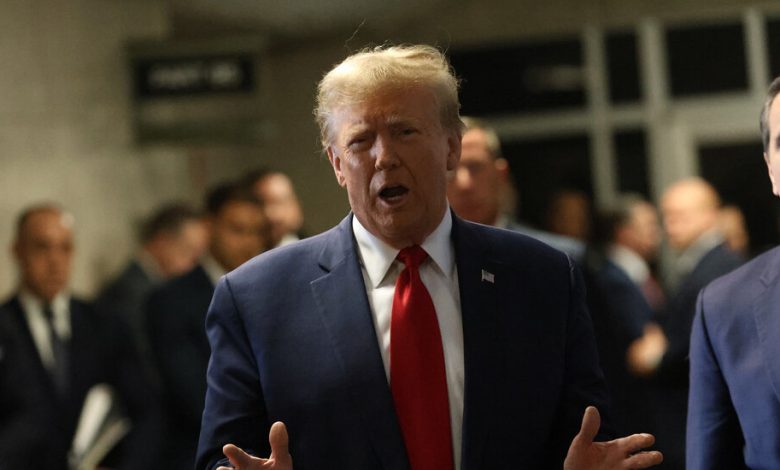Infamous Trump Tape May Be Discussed, Not Played, at Trial, Judge Rules

A New York judge on Monday ruled that prosecutors can introduce a variety of damaging evidence in Donald J. Trump’s coming criminal trial, including references to the infamous “Access Hollywood” recording in which Mr. Trump boasts about groping women.
Mr. Trump’s lawyers had sought to keep the tape out of evidence, and, the judge, Juan M. Merchan, struck something of a compromise. He ruled that it was unnecessary for prosecutors from the Manhattan district attorney’s office to actually play the tape for a jury, but that they could question witnesses about it.
In other rulings on Monday, the judge strengthened the prosecution’s hand heading into the trial, which is tentatively set to start in mid-April. Jury selection was originally scheduled to have begun March 25, but the judge last week delayed the trial at least three weeks after more than 100,000 investigative records came to light.
Unless the judge delays it again, it almost certainly will be the first of Mr. Trump’s four criminal cases to be heard by jurors, and will be the first prosecution of a former American president in the nation’s history.
Some of the evidence prosecutors want to introduce does not directly relate to the core accusation in the case — that Mr. Trump covered up a potential sex scandal involving the porn star Stormy Daniels to clear his path to the presidency in 2016. But it strikes at the heart of Mr. Trump’s potential motive for approving a hush-money payment to Ms. Daniels. He did that on the heels of the “Access Hollywood” recording being made public, a development that upended Mr. Trump’s campaign in the weeks before Election Day.
The judge withheld a decision about some of the most damaging pieces of evidence that prosecutors want to introduce: three public accusations of sexual assault lodged against Mr. Trump after the tape was released. Persuading the judge that allegations of sexual assault should be allowed could be difficult, given that judges are supposed to carefully evaluate evidence that could unfairly harm a defendant in the eyes of the jury.